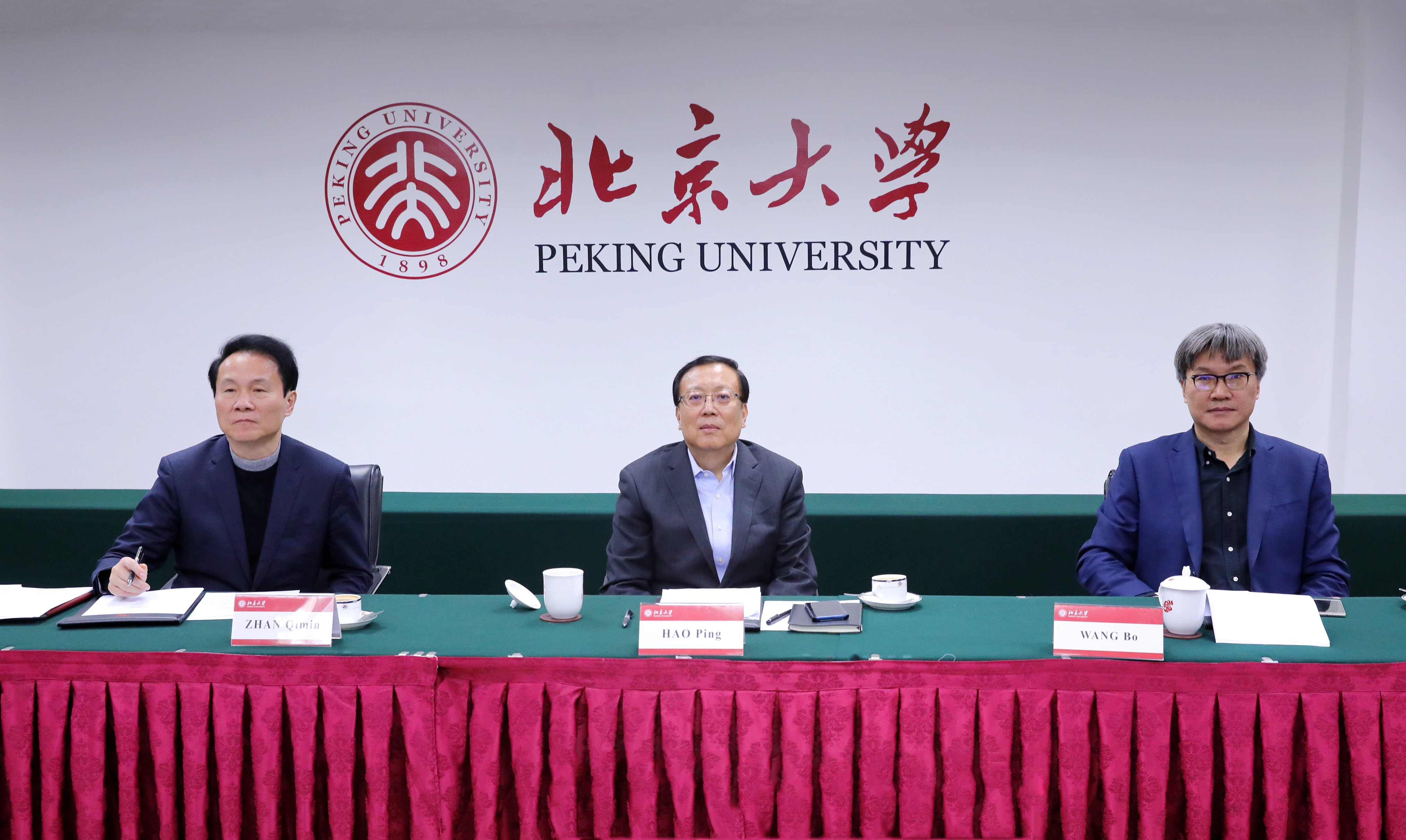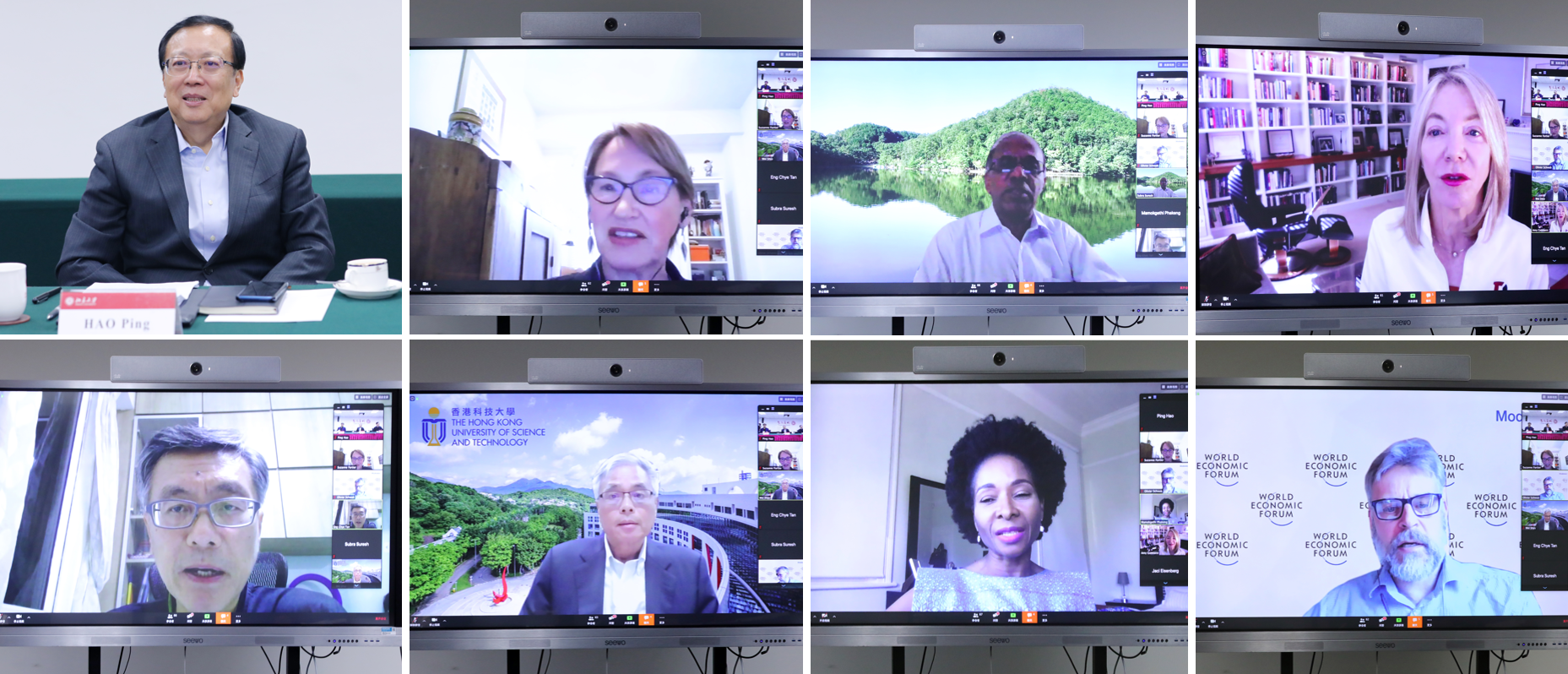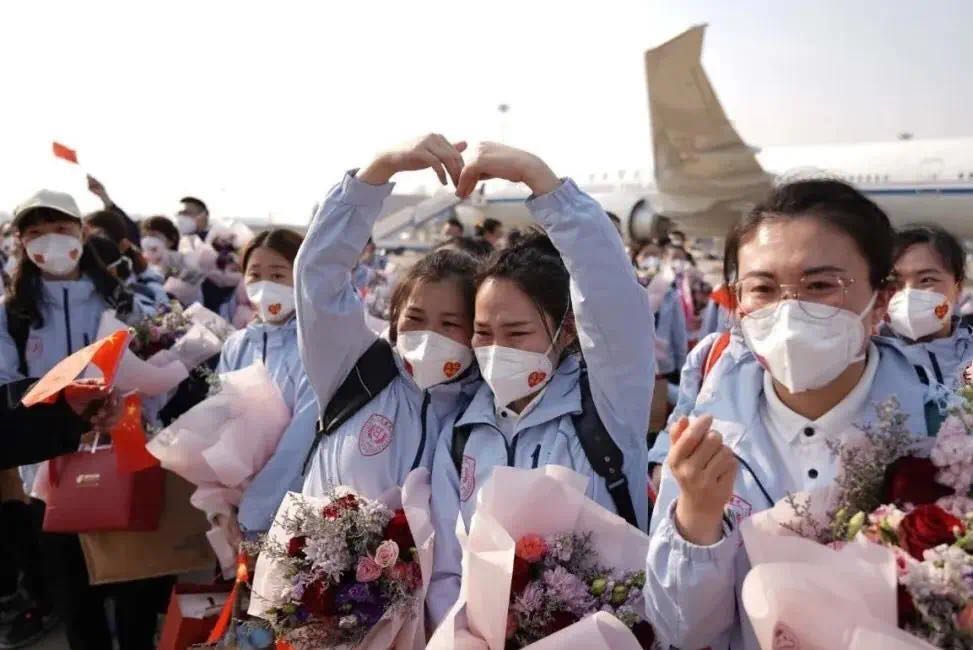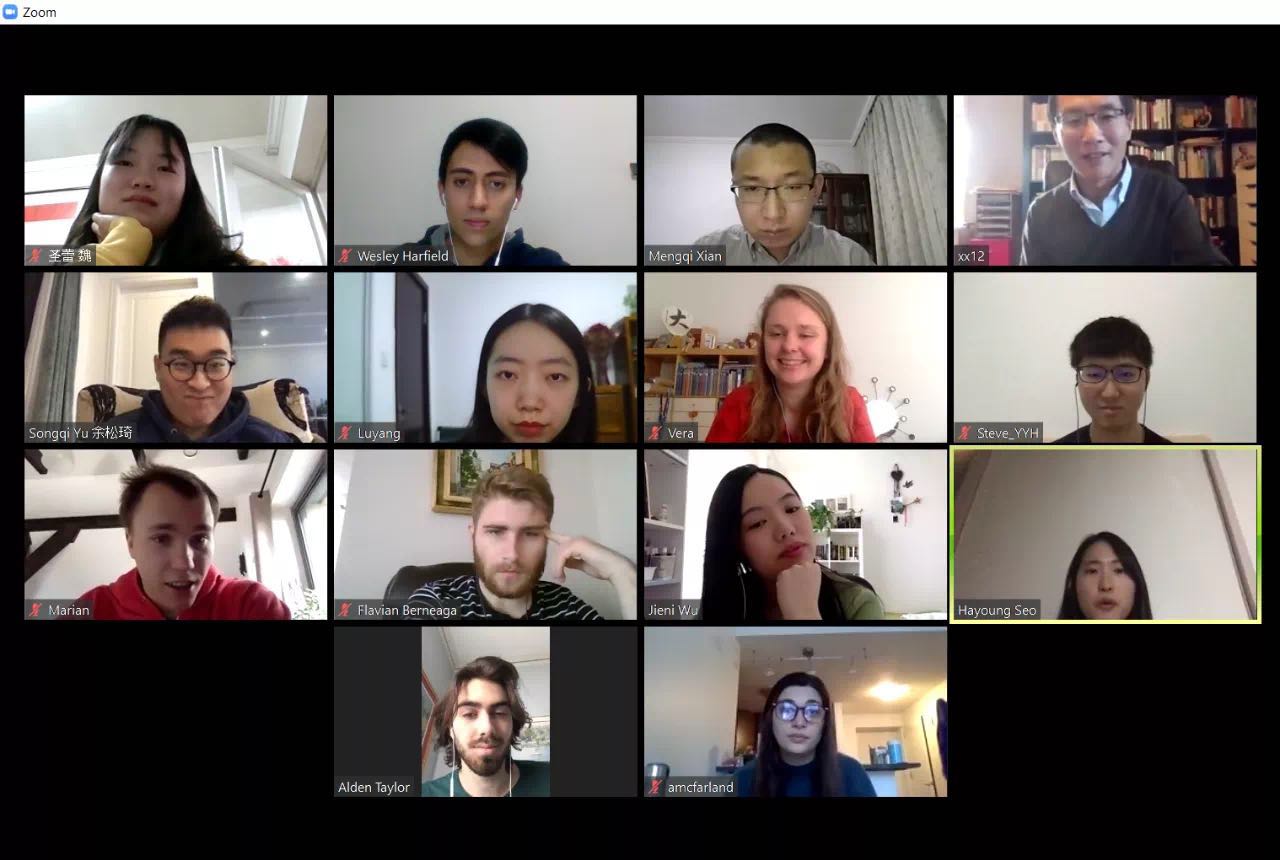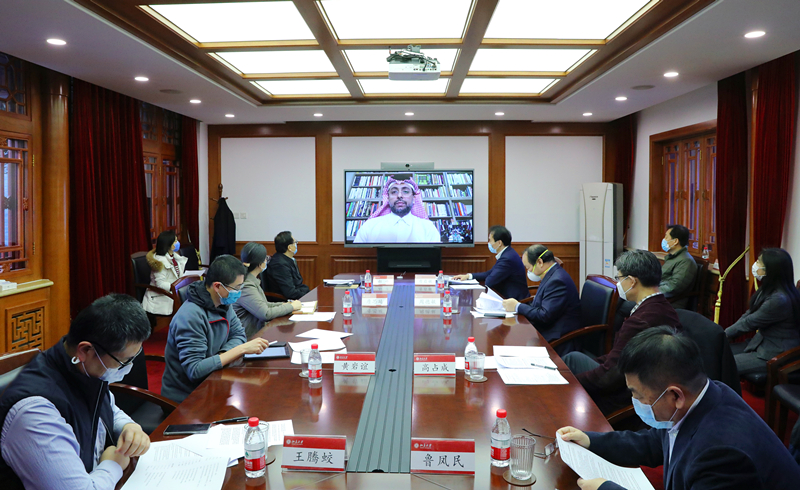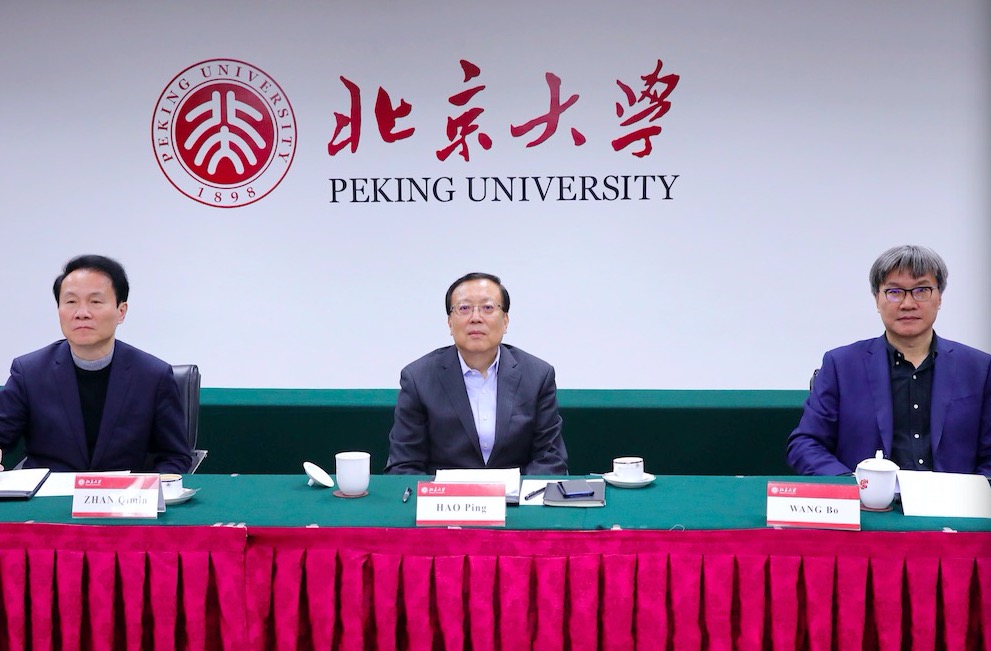Peking University, April 9, 2020: On April 8, Professor Hao Ping, president of Peking University, attended the World Economic Forum’s Global University Leaders Forum through a video conference where he, on behalf of universities in China, talked about the role and responsibilities universities should take amidst the COVID-19 epidemic. PKU Executive Vice President Zhan Qimin and Vice President Wang Bo were also in attendance.
President Hao Ping (central), Executive Vice President Zhan Qimin (left) and Vice President Wang Bo (right)
Representatives of over 40 universities from 18 countries and regions in the world, including University of Oxford, Yale University, National University of Singapore and so forth, attended the forum.
University leaders from 18 countries and regions exchange views on COVID-19
At the beginning of the conference, Suzanne Fortier, principal and vice-chancellor of McGill University and the GULF community Chair, delivered a welcome speech. President of University of Pennsylvania Amy Gutmann and President of The University of Cape Town Mamokgethi Phakeng then shared their thoughts on the management of students and local communities. Tan Eng Chye, president of National University of Singapore, and Subra Suresh, president of Nanyang Technological University, both discussed how to effectively develop national ecosystems. Wei Shyy, president of the Hong Kong University of Science and Technology, offered his prospects for the future.
Hao Ping pointed out that, in the face of this crisis, universities must make it their mission to strengthen research into disease prevention and control, and to promote mutual understanding and aid among people of different countries.
In response to the outbreak of COVID-19 in Wuhan, the presidents of Peking University’s three affiliated hospitals led teams totaling more than 400 people to support the former worst-hit city in Central China. They successfully completed their mission two days ago, having preserved Peking University’s tradition of serving society and serving people, and making their contribution to epidemic prevention in China.
Medical teams from PKU's affiliated hospitals return to Beijing on April 6
With regards to teaching work, Hao Ping saw that this epidemic has not only brought great challenges to higher education, it is also changing people’s educational concepts and methods, and leading to improvements in digital education. This semester, over 2,800 teachers taught 4,437 online courses to over 40,000 students using various platforms. 60 of our international teachers coming from 31 different countries and regions across 5 continents overcame the difficulties posed by differing time zones to teach their classes.
Students of PKU Yenching Academy located across the globe attend an online lecture
Peking University believes that international cooperation is crucial to fight this epidemic and has been working with institutions around the world to offer mutual support and conduct joint disease prevention work. PKU has reached a cooperation framework with the Virology Laboratory of Cambridge and has held a number of video conferences with the University of Michigan and the Qatar University to establish a joint mechanism of response to the disease. Teachers and students have translated brochures on fighting COVID-19 into Arabic as an effort to share with people of different languages and cultures.
PKU shares experience of fighting against COVID-19 with Qatar University
At the end of his speech, President Hao expressed his concerns about the incidences of racial discrimination and extreme nationalism that have occurred during the epidemic. Faced with this, he argued, there should be solidarity and mutual assistance among countries and universities must defend these common values.
Peking University has long been playing an active part in cooperating with international organizations as a research institution and a think tank. On January 22, Peking University and University College London held a joint session at the World Economic Forum 2020 in Davos-Klosters, Switzerland, titled “A Roadmap for AI towards SDGs.” This is the first time Peking University has participated in the World Economic Forum as an official forum organizer. This event provided an excellent opportunity to make the voices of Peking University and China heard on the world stage, and helped contribute to Peking University’s international development strategy.
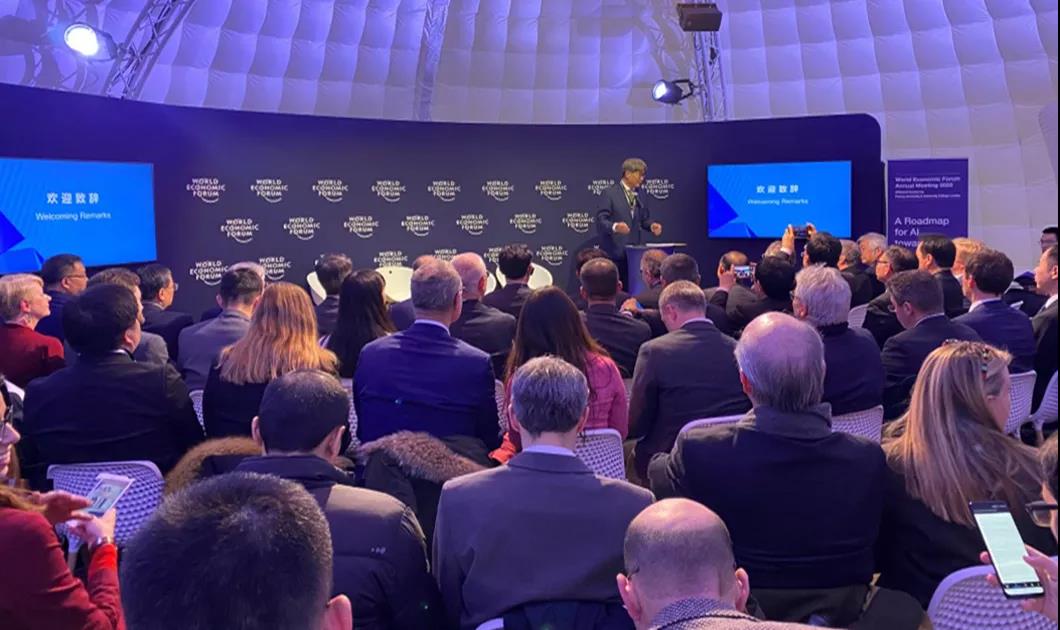
PKU and UCL's joint session on World Economic Forum 2020
The Global University Leaders Forum (GULF), a group of presidents from 29 top world universities, was established in 2006. It has two major roles, acting as a community to address educational, scientific and research agendas, and as an advisory body providing intellectual stewardship to the World Economic Forum. Peking University is a founding member of GULF.
Written by: Trevor
Edited by: Amanda Hu, Pu Hairui
Photo credit to: Liu Yueling, Li Xianghua, PKU Health Science Center, Yenching Academy of Peking University
Source: PKU Office of International Relations





